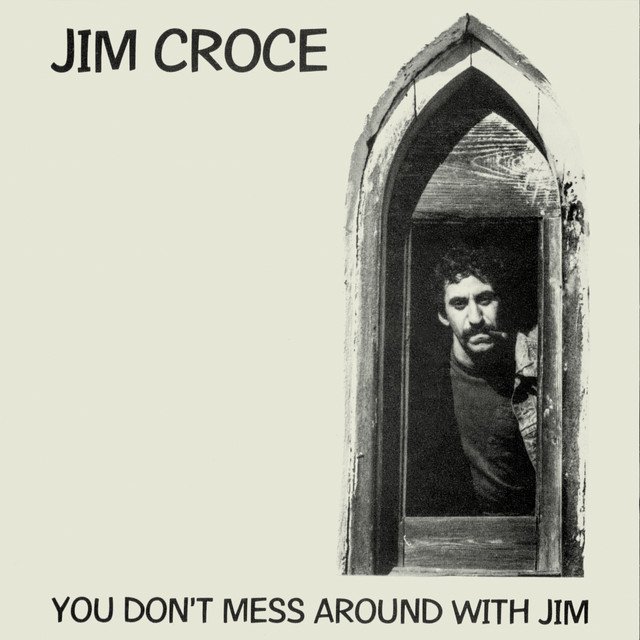Gone Too Soon: Review of 'You Don't Mess Around With Jim' by Jim Croce
There’s something eerily poetic when listening to a dead man’s voice, especially one like Jim Croce’s in his 1972 album, You Don’t Mess Around With Jim. Even though his career was short-lived, Croce’s quivering folk vocals, complemented by his country-styled guitar arrangements and deceptively simple melodies, still manages to tug at the heartstrings while enveloping its listeners in a warm, comforting embrace.
Before passing away at the age of 30, Croce gifted the music world with this 12-track compilation of easygoing, yet melancholic Folk rock. Although he released two studio albums prior to this – Facets (1966) and Jim & Ingrid Croce (1969) — this album resonates with Croce and his untimely death in such a profound way, making it his true masterpiece in the long run. Simple, straight-forward, this is what makes Croce’s sound so raw and authentic. He never needed overripe guitar riffs or any other experimentations within his work. His soft acoustics and direct narrations are the driving force of his heartfelt emotions within his music.
Croce’s vulnerability is completely upfront in You Don’t Mess Around With Jim. The purity of his down-to-earth voice can’t help but bring tears to your eyes as his longings of settling down echo between the subtle plucking of his guitar strings. “Photographs & Memories,” in particular, is like drifting through the winding road of reminiscence — you just want to relish in the nostalgia of your own forgotten memories.
While there are brief moments of humor throughout the album, including the titular track entitled “You Don’t Mess Around With Jim,” it's Croce’s somber tones that pierce his soulful words, entering this moment of self-reflection in an intimate way between himself and the listener. His “Operator (That’s Not the Way It Feels)” has a more sprightly quality to it, and yet the underlying message is so poignant: “I’ve overcome the blow, I’ve learned to take it well / I only wish my word could just convince myself / That it just wasn’t real, but that’s not the way it feels.” The song acts like a one-sided conversation, one that Croce executes with such ingenuity as the words gradually unfold his fragile state; the rollicking melody acts like a buffer, masking those heartbreaks and insecurities we’ve all felt at one point in time.
But there’s no denying the power that is “Time in a Bottle,” set at track #8 in You Don’t Mess Around With Jim. Croce’s emotionally evocative words about preserving time are now somewhat ironic, but make this song all the more effective. He was planning on retiring from the music business in order to spend more time with his family, but his life was tragically cut short due to a plane crash in 1973. His wistful lyrics of, “But there never seems to be enough time / To do the things you want to do / Once you find them,” can’t feel but hauntingly sentimental. It’s an unfortunate allusion — one that Croce unintentionally foreshadowed with his untimely death a year after this album was released. With the accompaniment of guitarist Maury Muehleisen, who died alongside Croce in the same aviation accident, the organic chemistry between Croce’s Gibson Dove and Muehleisen’s Martin D-35 and D-18 meld into one harmonious composition of unfiltered acoustics. Although “Time in a Bottle” tends to resonate with the frailty of life, especially following Croce’s death, there is also a fragment of wary optimism in his words. “If I had a box just for wishes / And dreams that had never come true / The box would be empty / Except for the memory / Of how they were answered by you,” is absolute poetry — one that unveils Croce’s deepest emotions and how reckless it is to wallow in self-pity. Regret is a wasted emotion.
